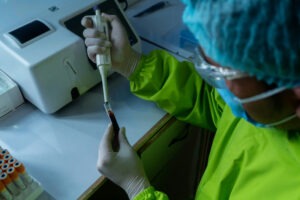AstraZeneca has signed an exclusive agreement to license CSPC Pharmaceutical’s new lipid-lowering therapy, YS2302018, for treating patients with dyslipidaemia.

Through this deal, AstraZeneca aims to bolster cardiovascular portfolio. Credit: Pexels from Pixabay.
Subscribe to our email newsletter
This move aims to bolster AstraZeneca’s cardiovascular portfolio in addressing key risk factors associated with chronic cardiovascular diseases.
As per the agreement terms, AstraZeneca will gain access to CSPC’s YS2302018 to develop it into a lipid-lowering therapy.
In exchange, CSPC is entitled to receive $100m in an upfront payment from AstraZeneca.
Furthermore, AstraZeneca will also make potential development and commercialisation milestone payments totalling up to $1.92bn and royalty payments in the future.
AstraZeneca BioPharmceuticals R&D head and executive vice-president Sharon Barr said: “This asset is an important addition to our cardiovascular pipeline and could help patients to more effectively manage their dyslipidaemia and related cardiometabolic diseases.
“Given the scale of unmet need, with cardiovascular disease being a leading cause of death globally, advancing novel therapies that can be used alone or in combination to effectively address known risk factors and advance patient care is particularly important and a key part of our strategy.”
A pre-clinical, oral small molecule Lipoprotein (a) [Lp(a)] disruptor, YS2302018 was discovered by CSPC.
This asset is said to have demonstrated efficacy in preventing the formation of Lp(a), a key player in cholesterol transport and a known risk factor for cardiovascular diseases such as coronary artery disease and stroke.
The molecule could have a vital role in treating various cardiovascular conditions, either as a standalone therapy or along with other treatments such as AstraZeneca’s oral small molecule PCSK9 inhibitor, AZD0780.
CSPC Pharmaceutical board chairman Dongchen Cai said: “Lipoprotein (a) represents a very important target for dyslipidaemia and implicated in multiple cardiometabolic diseases.
“Through this agreement with AstraZeneca and their global capabilities in clinical development and commercialisation, we look forward to accelerating the development of YS2302018, a novel small molecule Lp(a) disruptor to benefit the millions of patients worldwide living with these diseases.”
 Advertise With UsAdvertise on our extensive network of industry websites and newsletters.
Advertise With UsAdvertise on our extensive network of industry websites and newsletters.
 Get the PBR newsletterSign up to our free email to get all the latest PBR
news.
Get the PBR newsletterSign up to our free email to get all the latest PBR
news.

